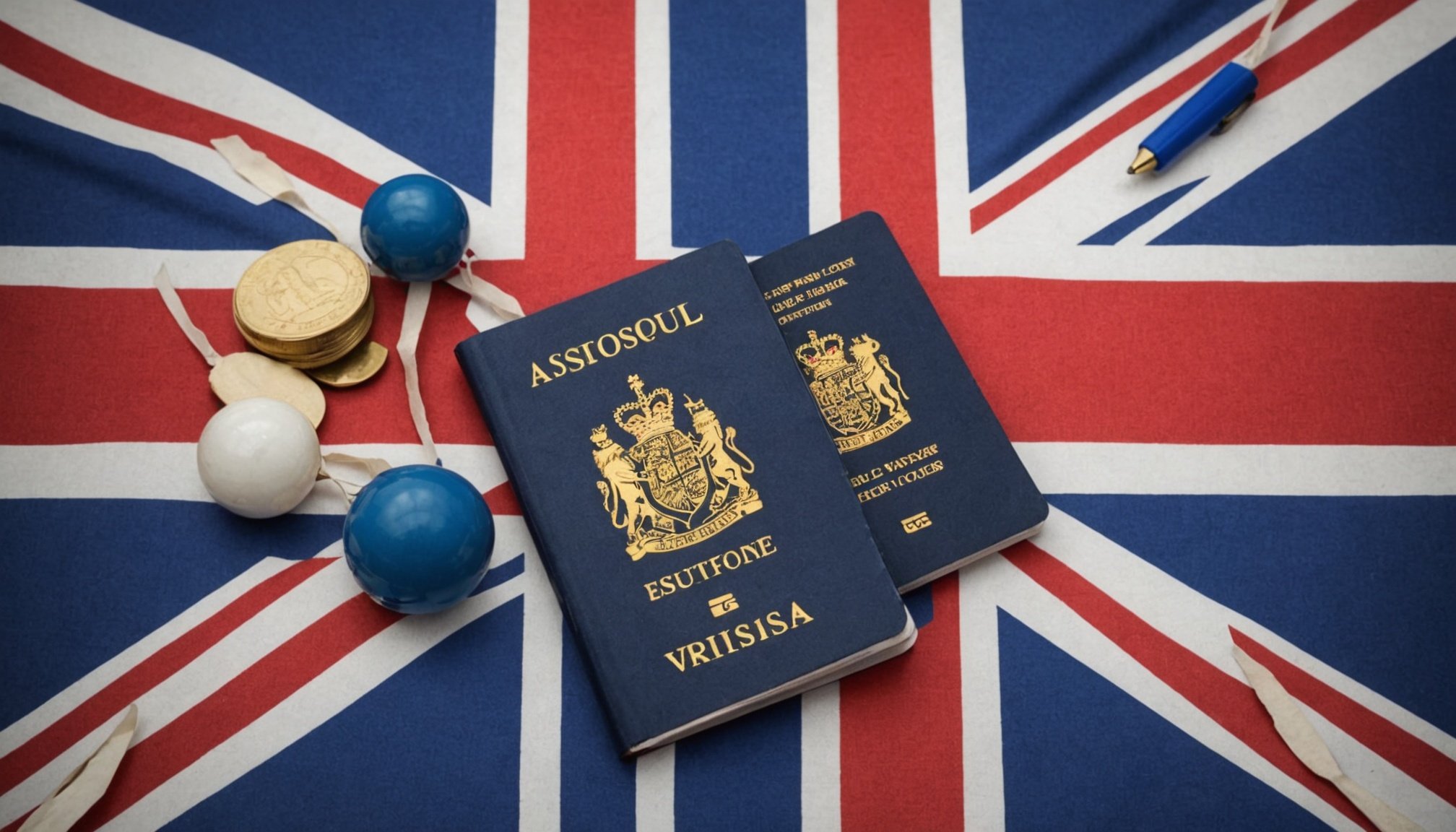Facing a visa refusal can be disheartening, especially when your family ties are at stake. Understanding the appeal process is essential to turn that decision around. This guide offers clear, actionable steps, empowering you to challenge a UK visa refusal effectively. With insights on common pitfalls and the required documentation, you can increase your chances of success. Explore the nuances of your situation and regain hope for family reunification.
Understanding Visa Refusals for Family Visits
When applying for a UK family visit visa, understanding the reasons behind visa refusals is crucial. Common reasons for visa refusals include insufficient financial evidence, lack of ties to the home country, or incomplete documentation. These factors can significantly impact the decision-making process.
Avez-vous vu cela : Farmingdale observer: key tips for a thriving community
A refusal letter typically outlines the specific reasons for denial. It's essential to thoroughly review this document to address any issues in future applications. Understanding the refusal letter can help applicants identify gaps in their submissions and improve their chances of success in subsequent attempts.
Previous visa refusals can also have a lasting effect on future applications. Each refusal is recorded in the applicant's immigration history, potentially influencing the outcome of new applications. Therefore, addressing the reasons for past refusals is vital for improving future prospects.
A lire en complément : Your Ultimate Guide to Fostering in the UK: Steps to Become a Foster Parent
To mitigate the risk of visa refusals, applicants should ensure all required documents are complete and accurately presented. Demonstrating strong ties to their home country, such as employment, property, or family commitments, can also bolster an application. By understanding the common pitfalls and learning from past refusals, applicants can enhance their chances of obtaining a UK family visit visa.
Essential Documentation for Appeal
When appealing a visa refusal, it's crucial to gather comprehensive visa appeal documentation. This includes all relevant supporting evidence that addresses the reasons for the initial refusal. Start by reviewing the refusal letter to understand what specific documents were lacking or insufficient.
Key application forms are an integral part of the appeal process. Ensure that you have the correct forms completed accurately. Mistakes on these forms can lead to further complications or delays. It's advisable to double-check all entries for accuracy.
Supporting evidence should include any new information or documents that strengthen your case. This might involve financial records, proof of employment, or additional ties to your home country. Providing detailed and accurate evidence can significantly improve your chances of a successful appeal.
In compiling your appeal, remember the importance of clarity and organisation. Clearly label and order your documents to make it easier for the reviewing officer to understand your case. By meticulously preparing your application and addressing previous shortcomings, you enhance your prospects of overturning a visa refusal.
Steps to Challenge a Visa Refusal
Challenging a visa refusal involves a structured appeal process. Understanding the procedural steps is critical to improving your chances of a successful outcome.
Initial Steps to Take
Upon receiving a refusal, the first step is to carefully review the refusal letter. This document outlines the specific reasons for the visa refusal. Address these points with new supporting evidence or clarification. Gather all necessary documents and ensure they are complete and accurate.
Timeline for Appeals
The timeline for appeals is stringent. You typically have a limited period to submit your appeal after receiving the refusal letter. It's essential to act promptly to avoid missing any deadlines. Preparing your appeal within this timeframe requires efficiency and attention to detail.
Legal Considerations
Legal advice can be invaluable in the visa refusal challenge process. Consulting with an immigration lawyer can provide insights into the best strategies for your appeal. They can help navigate complex legal requirements and ensure all procedural steps are followed correctly. Legal representation can also enhance your understanding of potential outcomes and the likelihood of success.
By following these steps, you can effectively challenge a visa refusal and improve your chances of obtaining a UK family visit visa.
Building a Strong Case for Your Appeal
Crafting a strong visa appeal requires a strategic approach. Begin by focusing on a compelling appeal letter. This document should clearly address the reasons for the visa refusal, providing new and relevant information. Highlight any changes in circumstances or additional evidence that strengthen your application.
Including a personal statement can be a powerful tool in your appeal strategy. This statement should articulate your reasons for visiting the UK and any personal connections that support your case. Personal testimonies from family or employers can further substantiate your ties and intentions.
Demonstrating strong ties to your home country is crucial. Evidence such as employment contracts, property ownership, or family commitments can reassure the reviewing officer of your intent to return after your visit. These documents should be presented clearly and logically to enhance the overall strength of your appeal.
Finally, consider the overall presentation of your visa application. Ensure all documents are organised, labelled, and easy to navigate. By meticulously preparing your case and addressing each point of refusal with solid evidence, you improve your chances of a successful outcome.
Possible Outcomes and Next Steps
Understanding the visa appeal outcomes is crucial for planning your next steps. Successfully appealing a visa refusal can lead to the issuance of the visa, allowing you to proceed with your travel plans. However, if the appeal is denied, it is important to know your options.
Options if the Appeal is Denied
When a visa appeal is unsuccessful, applicants can consider several next steps after refusal. One option is to reapply for the visa, ensuring that all previous issues are addressed and new evidence is provided. Alternatively, applicants might seek a judicial review, although this process can be more complex and may require legal assistance.
Resources for Further Assistance
Several resources are available for those needing further assistance. Consulting with an immigration lawyer can provide valuable insights and guidance. Legal professionals can help navigate the complexities of visa appeals and advise on further actions. Additionally, organisations specialising in immigration issues can offer support and information.
By understanding the potential outcomes and exploring available resources, applicants can make informed decisions about their next steps, improving their chances of a successful visa application in the future.












